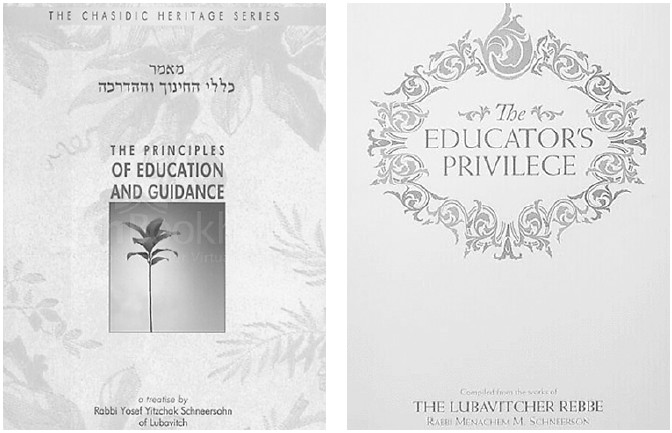Kosher Bookworm: It’s Labor Day. Can school be not too far ahead?
With this summer’s unusual earthquake and a hurricane now safely behind us, our minds and reading habits are shifting towards the high holidays and new school year.
Even for many of us who do not have children in school anymore, our interest in education transcends generations and is the hallmark of our sacred faith.
With this in mind, there are three wonderful books that I wish to bring to your attention, all themed towards education, unique in their presentment yet united in the Chassidic point of view on the topic.
Two of the books are published by the Crown Heights-based Kehot Publication Society; and the third by Gal Einai of Kfar Chabad in Israel. They share a passion of education as an enhancement instrument in the service to G-d in an informed and intelligent manner.
“The Principles of Education and Guidance” first published in 1990 with a second revised printing in 2010 is a treatise by Rabbi Yosef Yitzchak Schneersohn, of blessed memory. This discourse was first written and delivered in 1898 in Yiddish, and first published in Hebrew in 1944 entitled, Klalei Hachinuch Vehahadracha. A half century later it was translated in English for wider dissemination.
Among the topics addressed in this work are the following:
The student’s character; and classification of people based on four determinants to include Torah scholars, business people, class, and place of residence. These distinctions are further broken down and evaluated as to their impact upon education. The section on the environment, poverty and wealth has an uncanny contemporary ring to it. The role of the educator is addressed in terms of an educator’s self-understanding of his or her own limitations, as well as those of their charges, and of the impact these factors have upon the total educational picture.
The second work is an anthology from the works of Rabbi Menachem M. Scheerson, of blessed memory, and is titled, “The Educator’s Privilege”, compiled by Rabbi Eliyahu Friedman and translated by Rabbi Aryeh Leib Solomon [2010].
This work is organized into six parts, dealing with the obligation of education, the happy lot of the educator – a must read for every teacher and administrator, the uniqueness of chinuch as a sacred calling, the legacy of the previous six rebbes as spiritual role models in education, the role that words of encouragement can have upon the education of a child, and lastly, five brief essays on the role of the festivals in education.
These writings by the late rebbe provide for all of us a series of inspiring teachings that should help to further encourage all of us in dedicating much of our communal resources to guaranteeing to our youth the best quality education.
What makes this work so special is the inclusion of a philosophy and values system in the rebbe’s remarks that help frame those teachings by giving them, and the readers in turn, a better appreciation as to what really is education in the eyes and mind, as well as heart of our sacred faith.
The third book is titled “The Art of Education” [2005] written by American-born Rabbi Yitzchak Ginsburgh, a graduate of Yeshiva University, where he received an MS in math in 1965. Soon after graduating, he made aliya to Israel where he took on a career in teaching and lecturing on mysticism and Jewish theology, relating them to contemporary subjects and disciplines in science, politics, the arts, and psychology.
The book under review is a very complicated one wherein the author attempts to weave together his concepts of what constitutes education and relates it to various kabbalistic concepts and teachings as well as its application to a values system that all work in tandem with his view of what the Jewish religion and the education of its youth constitutes.
Studded throughout is an uncanny element of self-reflection and a sharp attempt at giving the reader the impression that kabbalistic teachings are at the heart of Jewish theology, something that to this writer is of dubious credibility.
Nevertheless, this work deserves your attention if education is of interest to you for herein Rabbi Ginsburgh presents an interesting take in the book’s first section titled, “The Roots of Education”, especially where he develops his take on Abraham as a model educator, the role of prayer, willpower, and self-discovery.
Read, enjoy, and learn.

 53.0°,
Overcast
53.0°,
Overcast 




